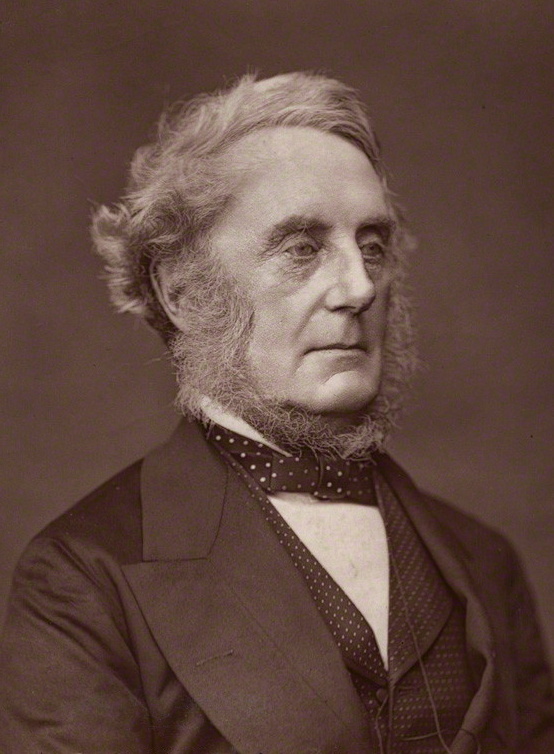
Edward Cardwell, 1st Viscount Cardwell
Edward Cardwell, 1st Viscount Cardwell, PC, FRS (24 July 1813 – 15 February 1886) was a prominent British politician in the Peelite and Liberal parties during the middle of the 19th century. He is best remembered for his tenure as Secretary of State for War between 1868 and 1874 and, with William Ewart Gladstone's support, the introduction of the Cardwell Reforms. The goal was to centralise the power of the War Office, abolish purchase of officers' commissions, and to create reserve forces stationed in Britain by establishing short terms of service for enlisted men.
The Viscount Cardwell
Background and education[edit]
Cardwell was the son of John Henry Cardwell, of Liverpool, a merchant, and Elizabeth, daughter of Richard Birley. He was educated at Winchester and Balliol College, Oxford, from where he took a degree in 1835. He was called to the bar, Inner Temple, in 1838.[1]
Early political career[edit]
Cardwell was employed in the Colonial Office in the late 1830s, and directly involved in drafting written instructions (sent to Sydney) to Captain William Hobson RN, as to how to 'treat with the natives' (Maori) of New Zealand; He became a follower and confidant of Sir Robert Peel, the Prime Minister, and held his first office under him as Financial Secretary to the Treasury between 1845 and 1846.
When Peel split the Conservative Party in 1846 over the issue of repealing the Corn Laws, Cardwell followed Peel, and became a member of the Peelite faction. When the Peelites came to power in 1852, Cardwell was sworn of the Privy Council[2] and made President of the Board of Trade by Lord Aberdeen, a position he held until 1855.
In 1854 he passed the Railway and Canal Traffic Act 1854 which stopped the cut-throat competition between Railway Companies which was acting to their and the railusers' disadvantage.
Reelection and return[edit]
During these years, Cardwell moved from seat to seat in Parliament. In 1847, he was elected as MP for Liverpool.[3]
In 1852, he lost elections for Liverpool and for Ayrshire, but won a seat at Oxford. In 1857, he was defeated for the Oxford seat, but a second election for the seat was held shortly after, which he won (beating William Makepeace Thackeray).[4]